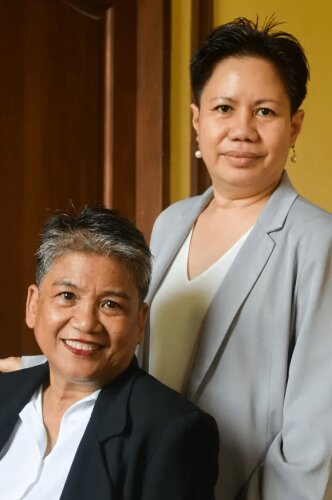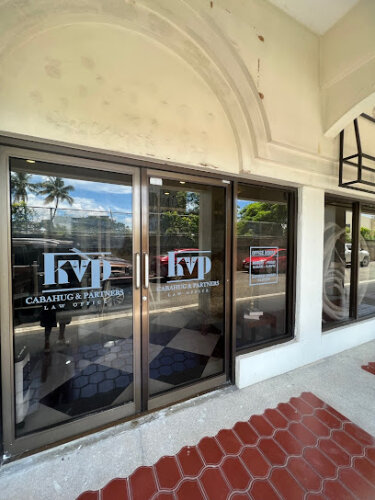Best Climate Change Law Lawyers in Cebu City
Share your needs with us, get contacted by law firms.
Free. Takes 2 min.
List of the best lawyers in Cebu City, Philippines
About Climate Change Law in Cebu City, Philippines
Climate Change Law in Cebu City refers to the body of national and local regulations, policies, and legal principles that address the mitigation and adaptation of climate change impacts. These laws are intended to help the community reduce greenhouse gas emissions, promote sustainable development, and manage environmental risks specific to urban areas like Cebu City. They bring together environmental, land use, and energy regulations to create a framework for tackling climate-related challenges, in line with both national legislation such as the Philippine Climate Change Act of 2009 and local ordinances that aim to protect the city's resources and communities.
Why You May Need a Lawyer
There are several situations in which consulting a legal professional specializing in Climate Change Law may be necessary:
- Compliance concerns for businesses or organizations facing new climate-related regulations or ordinances
- Guidance on permits for construction, land use, or industrial activities subject to environmental restrictions
- Disputes over resource use, property damage, or public health issues linked to climate impact
- Legal action regarding violation of environmental laws, either as plaintiff or defendant
- Interest in participating in public consultations or petitions affecting local climate policymaking
- Development or review of contracts to ensure they comply with new environmental standards
Local Laws Overview
Cebu City adheres to national laws such as the Climate Change Act (Republic Act No. 9729) and the Clean Air Act (Republic Act No. 8749), but also issues its own ordinances to address unique local concerns. The city's programs focus on disaster risk reduction, waste management, sustainable transport, and renewable energy initiatives. Key legal aspects include:
- Mandatory integration of climate change adaptation in policy development and project planning
- Implementation of building codes and development permits that consider flood zones and environmental hazards
- Regulation of emissions from vehicles and industrial sources according to local air quality standards
- Strict management and regulation of solid waste to prevent pollution and promote recycling or composting
- Coordination with the Cebu City Environment and Natural Resources Office (CCENRO) for permits and compliance
- Community participation activated through public hearings and the right to file environmental protection suits
Frequently Asked Questions
What is Climate Change Law?
It is a collection of legal norms that address global warming and related environmental risks by regulating emissions, promoting adaptive strategies, and protecting natural and human systems from climate impacts.
How do national laws on climate change affect Cebu City?
National laws provide the framework, but Cebu City adapts them through local ordinances, specific programs, and implementation guidelines suitable for local conditions.
Who enforces climate change-related laws in Cebu City?
Enforcement is a joint responsibility of the Department of Environment and Natural Resources, the Climate Change Commission, and the Cebu City Environment and Natural Resources Office (CCENRO).
Do local businesses need to comply with climate change regulations?
Yes, businesses must comply with air and water quality standards, waste management rules, and other ordinances that help reduce environmental impact.
How can residents participate in climate policy decisions?
Residents can attend public consultations, join environmental advocacy groups, file petitions, and engage in city-led climate action initiatives.
What are the penalties for violating climate change-related laws?
Penalties may include fines, business permit suspension, mandatory corrective actions, or even criminal charges in severe cases of environmental harm.
Can individuals or communities file lawsuits for climate-related damage?
Yes, individuals or groups can seek legal remedies for activities harming the environment, thanks to provisions in the Rules of Procedure for Environmental Cases.
What permits are needed for developments in flood-prone or coastal areas?
Developers must secure environmental compliance certificates, zoning permits, and other clearances proving climate-resilient design and mitigation measures.
Are there incentives for adopting green technology or practices?
Certain government programs offer tax incentives or technical assistance for renewable energy projects, waste reduction, and other eco-friendly initiatives.
How can a lawyer help with climate change issues?
A lawyer can clarify obligations, secure necessary permits, draft or review contracts, mediate disputes, and represent you in legal proceedings related to climate law.
Additional Resources
For more information and assistance, consider reaching out to:
- Cebu City Environment and Natural Resources Office (CCENRO) - the main local agency for climate and environmental compliance
- Climate Change Commission (Philippines) - provides guidelines and technical support
- Department of Environment and Natural Resources Region VII - regional authority for implementation of national laws
- Integrated Bar of the Philippines Cebu Chapter - for referrals to lawyers specializing in environmental or climate change law
- Environmental Legal Assistance Center (ELAC) - offers free or low-cost legal advice on environmental and climate-related cases
Next Steps
If you believe you need legal advice or assistance with a climate change law matter in Cebu City, take these steps:
- Gather all relevant documents, permits, and correspondence related to your issue
- List your specific concerns and the outcomes you hope to achieve
- Contact a licensed lawyer in Cebu City with experience in environmental or climate change law
- Schedule a consultation to assess your situation and receive advice on options and possible actions
- Follow your lawyer’s guidance regarding compliance, documentation, or dispute resolution
- Stay informed about upcoming policy changes or public consultations that may affect your case
Lawzana helps you find the best lawyers and law firms in Cebu City through a curated and pre-screened list of qualified legal professionals. Our platform offers rankings and detailed profiles of attorneys and law firms, allowing you to compare based on practice areas, including Climate Change Law, experience, and client feedback.
Each profile includes a description of the firm's areas of practice, client reviews, team members and partners, year of establishment, spoken languages, office locations, contact information, social media presence, and any published articles or resources. Most firms on our platform speak English and are experienced in both local and international legal matters.
Get a quote from top-rated law firms in Cebu City, Philippines — quickly, securely, and without unnecessary hassle.
Disclaimer:
The information provided on this page is for general informational purposes only and does not constitute legal advice. While we strive to ensure the accuracy and relevance of the content, legal information may change over time, and interpretations of the law can vary. You should always consult with a qualified legal professional for advice specific to your situation.
We disclaim all liability for actions taken or not taken based on the content of this page. If you believe any information is incorrect or outdated, please contact us, and we will review and update it where appropriate.

















